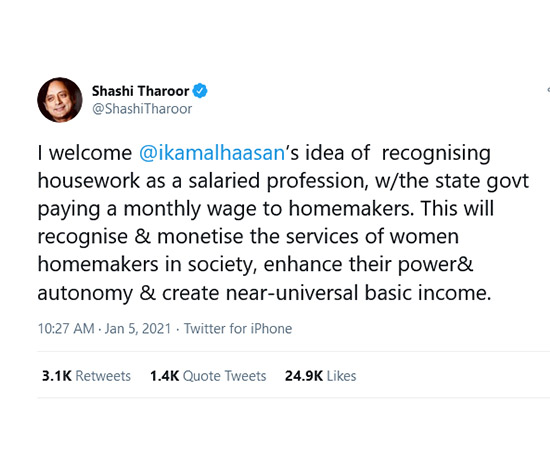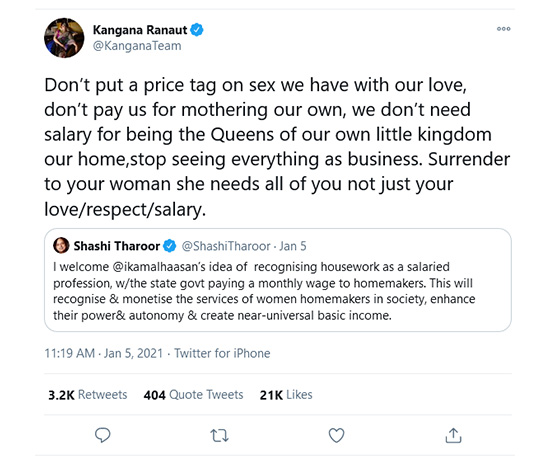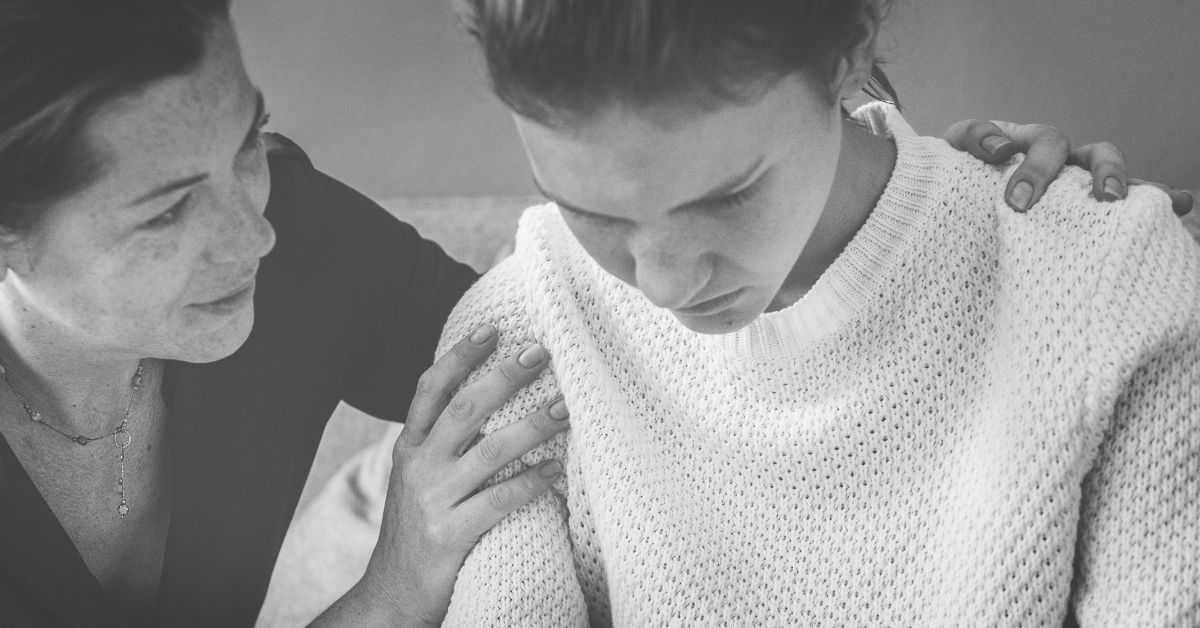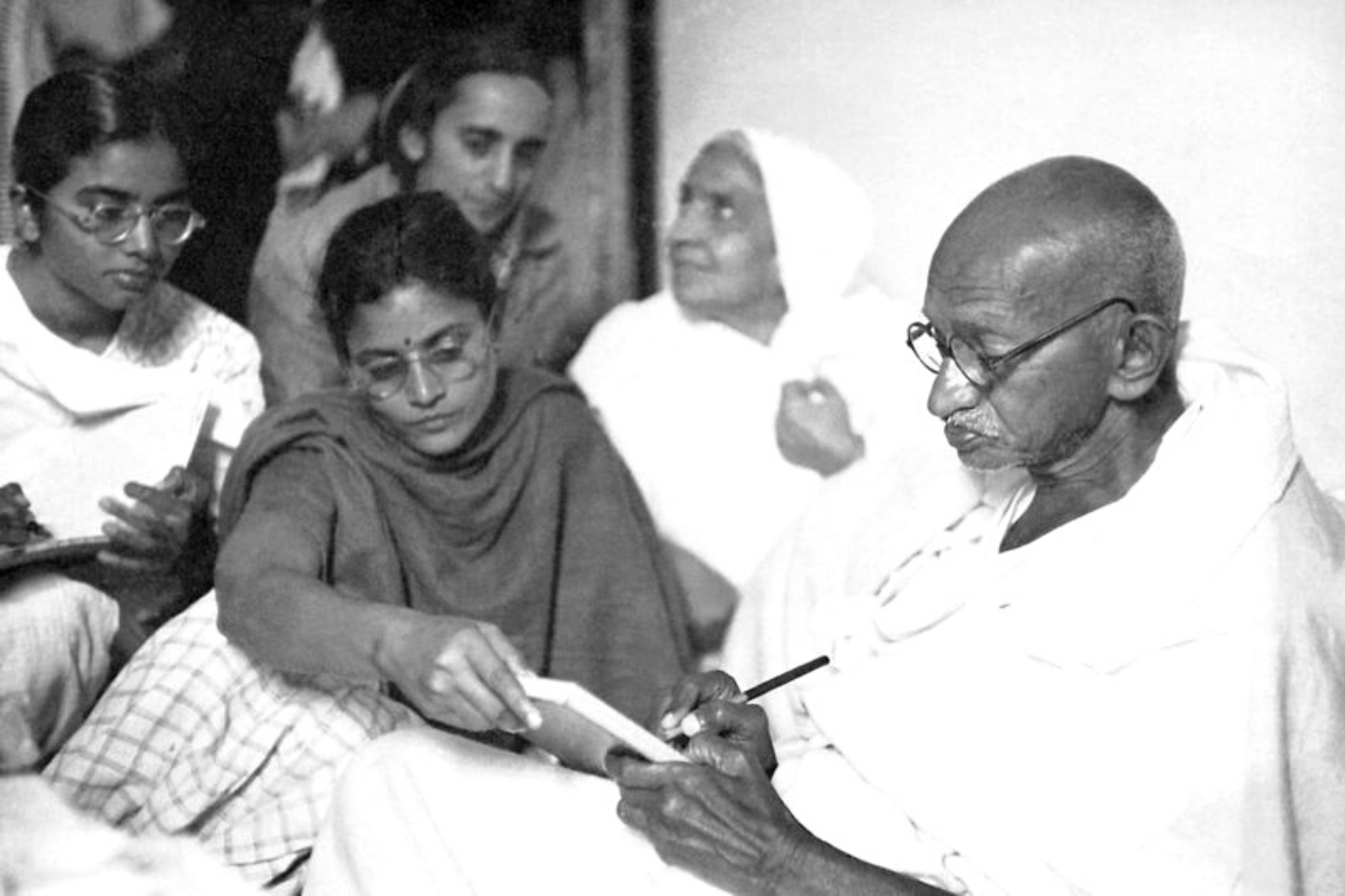Actor Kamal Haasan has now forayed into politics after floating his political party Makkal Needhi Maiam’s (MNM). A couple of days back when releasing the party’s portfolio Haasan promised payment to homemakers — along with computers with high-speed internet to all households and transformation of farmers to agri-entrepreneurs — if his party is voted to power in the 2021 Tamil Nadu assembly elections.
Senior Congress leader Shashi Tharoor supported this proposal of paying homemakers and took to Twitter to hail this initiative
“I welcome @ikamalhaasan’s idea of recognising housework as a salaried profession, w/the state government paying a monthly wage to homemakers. This will recognise and monetise the services of women homemakers in society, enhance their power and autonomy and create near-universal basic income.”

A New Concept
This is a very new concept that hasn’t been talked about much in our society. It brought many questions to my mind – How? Is it even possible? Is it right?
A picture that had gone viral a few months back on being on the cover of cover of Kerala’s Gender Budget 2020 flashed through my mind. It was a painting by a 10-year artist, Anujath Sindhu Vinaylal showing the daily chores of his mother and the mothers in his neighbourhood.

A homemaker, especially in a patriarchal society like ours, takes care of so many things around the house. She is considered the primary responsible person for cooking, cleaning, shopping, caring for the elders, her kids’ upbringing, her husband’s needs and happiness. The list is endless.
Most of the time, all these responsibilities aren’t officially handed over to or taken up voluntarily by the woman. It is almost an unsaid understanding that the moment a woman gets married into the family, these tasks just become her duty. The expectations are obviously way higher if the woman does not have a profession and does not go out to work.
If you don’t realize your worth, no one else will
The fact remains that for most of the homemakers, life is not very easy. Earning money is still considered the most important contribution to the functioning of a family. This thought shapes the way the family and the society views the role of a homemaker – as secondary and less important compared to the one who “provides” for the family. There is very minimal to no acceptance or acknowledgement of the time and effort a homemaker puts in to make lives smoother to all around her.
Infact, a homemaker has to prove her worth by playing several roles and taking up several responsibilities. It would not be very surprising to hear, ‘Ghar par hi tho thi poore din’, being said to her, in case she voices her fatigue after a day’s work occasionally. But what is most disheartening is that many times the woman herself does not value the hard work she puts in and plays down her role in the family.
Love can’t be measured with money
Shashi Tharoor’s tweet in support of homemakers getting paid drew reaction from many people. One of the notable reactions came from actress Kangana Ranaut, who is fiercely independent and known to speak her mind.
Replying to Shashi Tharoor’s tweet, Kangana said, “Don’t put a price tag on sex we have with our love, don’t pay us for mothering our own, we don’t need salary for being the Queens of our own little kingdom our home, stop seeing everything as business. Surrender to your woman she needs all of you not just your love/respect/salary.”

A woman has been blessed to be affectionate, caring, and sacrificing. A mother’s love is incomparable to anything else. When we talk about paying homemakers, are we guilty of trying to put a price on all these emotions. Is it even possible to appraise all the small and big things a homemaker does through the day? It does not even seem possible to imagine a homemaker doing her chores for the money, and not the love and care for the family.
What’s right, what’s wrong? Is there even a right or a wrong?
We may have several other questions in our minds regarding this –
Will getting paid for house work give it the same level of dignity as any other salaried job?
Will it help reduce the sense of patriarchy that we see around us?
Will it help a woman feel more worthy of herself?
Is money the ideal way to acknowledge and appreciate a homemaker’s efforts?
Will we ever become a society where a homemaker can proudly say – ‘I am a homemaker’?
Let this be a start for us to do some thinking. There may be many opinions and many suggestions. But there should be no doubt that homemakers need to be celebrated for all that they do. Homemakers play as much an important role in society as others and it is about time we acknowledge this. What would be the ideal way to do this – give them respect and acknowledgement or payment or both? That’s still up for discussion.



















